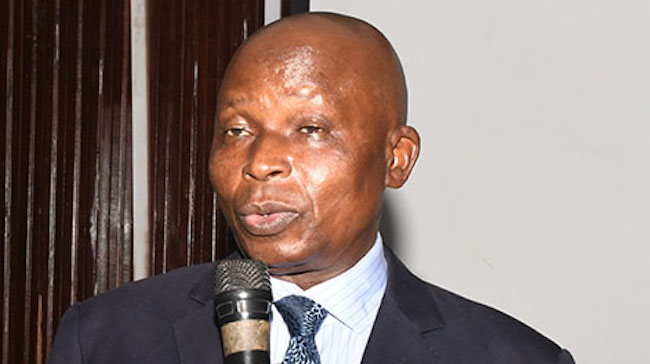🌿 Ruzu Non-Alcoholic Herbal Bitters
Ruzu Non-Alcoholic Herbal Bitters is a natural health supplement specially formulated to:
- ✅ Promote general wellness
- ✅ Detoxify the body
- ✅ Support the treatment of various ailments
Made from a powerful blend of 100% organic and medicinal herbs, Ruzu is completely alcohol-free, making it ideal for:
- 👪 All age groups
- 🌱 Health-conscious individuals
- 🌿 Anyone seeking non-alcoholic herbal remedies
Whether you're looking to boost your vitality, cleanse your system, or support healing the natural way, Ruzu Bitters offers a trusted herbal solution.
Nigeria’s Attorney General of the Federation and Minister of Justice, Lateef Fagbemi, has called for a significant increase in judicial officials’ salaries.
This request comes amid concerns that stagnant wages for over 16 years are threatening judicial independence and reform efforts.
He stated this on Monday during a one-day public hearing bordering on the advancement of the welfare of the judiciary and the need to salvage an impoverished judiciary.
Fagbemi and the Minister of Finance, Wale Edun, had appeared before the Senate committee on Judiciary, human rights and legal matters for the commencement of hearing on a bill for an Act, to prescribe the salaries, allowances, and fringe benefits of judicial office holders in Nigeria and related matter bill 2024.
He said, “This bill will birth an appropriate and commensurate remuneration that will ensure judicial independence and integrity.
READ ALSO:Reps summon Umahi, Edun, Fagbemi to explain procurement process on Lagos-Calabar Highway
“Sometime in July 2023, the National Judicial Council forwarded a Proposed Review of Consolidated Salaries and Allowances for Judicial Officers for consideration by the President. The NJC proposal was the revision of the remuneration package earlier proposed by the Revenue Mobilisation Allocation and Fiscal Commission which was not consummated before the end of the previous administration.”
Fagbemi highlighted the critical role a well-compensated judiciary plays in upholding the rule of law. He argued that the current salary structure, unchanged since 2007, is “totally unacceptable” and hinders meaningful judicial reform. The Minister expressed concern that low salaries could make judges susceptible to corruption and compromise the integrity of the justice system.
He further reminded that between May 1999 and March 2011, the Federal Government had reviewed the salaries and allowances of Public Servants and Political office holders on four occasions, specifically in 2000, 2005, 2007 and 2011 and New regimes of national minimum wage, were also put in place within the same period, however, noted that the salaries of judicial officers were only reviewed twice during the same period.
The debate over judicial salaries in Nigeria highlights the tension between ensuring judicial independence and managing government finances. The Senate’s decision on the proposed bill will be closely watched, with potential implications for the fight against corruption and the overall effectiveness of the Nigerian justice system.
If you like what we do, and are ready to uphold solutions journalism, kindly donate to the Ripples Nigeria cause.
















